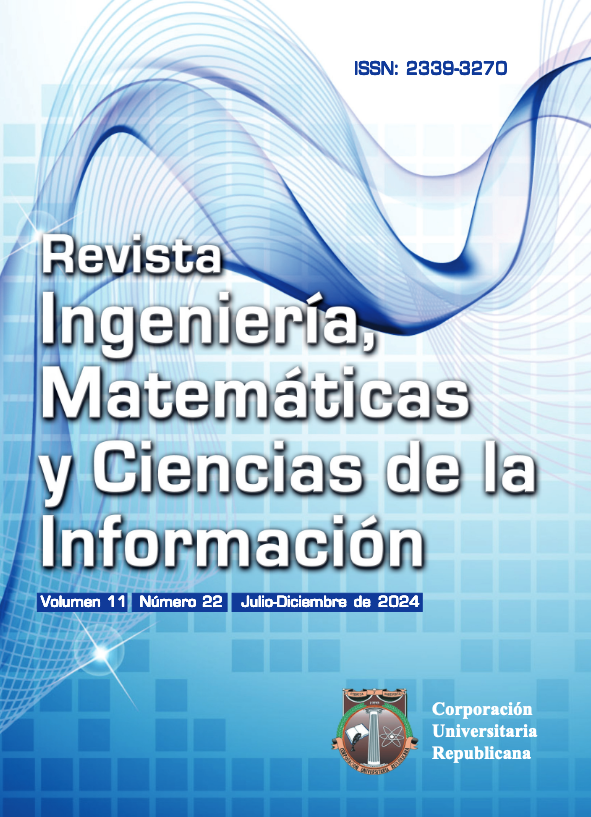CARD GAME ONE AS A STRATEGY TO REINFORCE COGNITIVE SKILLS IN THE SECOND GRADE
EL JUEGO DE CARTAS UNO COMO ESTRATEGIA PARA EL FORTALECIMIENTO DE HABILIDADES COGNITIVAS EN GRADO SEGUNDO

This work is licensed under a Creative Commons Attribution 4.0 International License.
![]()
Esta obra está bajo una licencia internacional
Atribución/Reconocimiento 4.0 Internacional
Show authors biography
The main objective of the study was to implement the card game UNO as a pedagogical strategy to strengthen the cognitive skills of second grade students at the Luis Carlos Galán Sarmiento Educational Institution, located in the municipality of Villa de Leyva. This intervention was based on the difficulties observed in key areas such as attention, memory, concentration, and decision making among students. To address these shortcomings, an intervention was developed that included specific exercises for remembering numbers of 2, 3 and 4 digits, in order to improve these skills. This strategy was implemented in response to the low interest and lack of motivation of students towards the subject, seeking to generate a more dynamic and participatory learning environment.
Considering the need to implement pedagogical strategies that promote meaningful learning, it is essential that students actively participate in classes that arouse their interest and enjoyment, without compromising the quality of their learning process. Following the basic competency standards established by the Ministry of National Education (MEN), it was decided to incorporate the card game UNO in mathematics classes. This decision seeks not only to enrich the educational experience, but also that both teachers and parents understand the importance of this game in the development of essential cognitive skills in students.
Complementing the aforementioned, this work was carried out with a sample of 26 second grade students. The Participatory Action Research (P.A.R.) methodology was implemented with a qualitative approach. Through this line of research, the researcher sought to acquire fundamental competencies for her professional performance in the educational field, focusing on the implementation of models, strategies and activities aimed at improving cognitive skills in mathematics. For data collection, four main instruments were used: an interview, a diagnostic test, didactic sequences and a field diary. These instruments allowed an initial diagnosis to be made, field work to be carried out and the results to be systematized. The findings demonstrated that the use of the UNO card game is a highly effective pedagogical strategy to be applied in the classroom, since it facilitates the development of essential cognitive skills. In addition, this strategy allows classes to be taught in a creative way, generating in students a renewed enthusiasm for learning various topics of the subject. The use of UNO cards not only facilitates the understanding of the contents, but also turns the learning process into a playful and motivating experience.
Article visits 175 | PDF visits 88
Downloads
- F. Mariotti, La recreación y los juegos. 2014. https://etrillas.mx/libro/la-recreacion-y-los-juegos_10127
- A. Extremera & P. Ruiz, El juego motor como actividad física organizada en la enseñanza y la recreación. Universidad de Granada. 2016. https://dialnet.unirioja.es/servlet/articulo?codigo=5351993
- L. Gastelu Sayas, ade.edugem.gob.mx. 2017. https://repositorio.une.edu.pe/bitstream/handle/UNE/2786/tesis.pdf?sequence=1&isAllowed=y
- R. Feo, Orientaciones básicas para el diseño de estrategias Didácticas, Instituto Pedagógico de Miranda José Manuel Siso Martínez 2010. Dialnet-OrientacionesBasicasParaElDisenoDeEstrategiasDidac-3342741.pdf
- E. Symons, repository.libertadores.edu.co. 2016. https://repository.libertadores.edu.co/bitstream/handle/11371/906/BedoyaLoaizaSandraMar%C3%ADa.pdf?sequence=2
- A. Clavero, Habilidades cognitivas. 2016. https://cursos.aiu.edu/Desarrollo%20de%20Habilidades%20del%20Pensamiento/PDF/Tema
- M. Frías Guzmán, Y. Haro Águila & I. Artiles Olivera, Las habilidades cognitivas en el profesional de la Información desde la perspectiva de proyectos y asociaciones internacionales. Investigación bibliotecológica, 31(71), 201-218. 2017.https://doi.org/10.22201/iibi.0187358xp.2017.71.57816
- R. Hernández, Metodología de la investigación (5.a ed.). Mexico: McGraw-Hill/Interamericana Editores. 2010.
- E. R. Barrantes, Investigación: un camino al conocimiento, un enfoque cualitativo, cuantitativo y mixto. Costa Rica: Montes de Oca. 2014.
- J. Elliot, La investigación - acción de educación. Madrid (España): Educaciones Morata. 2010.
- L. Cabrera Morgan, La investigación-acción: una propuesta para la formación y titulación en las carreras de Educación Inicial y Primaria de una institución de educación superior privada de Lima. Lima: Volumen 26. 2017.




